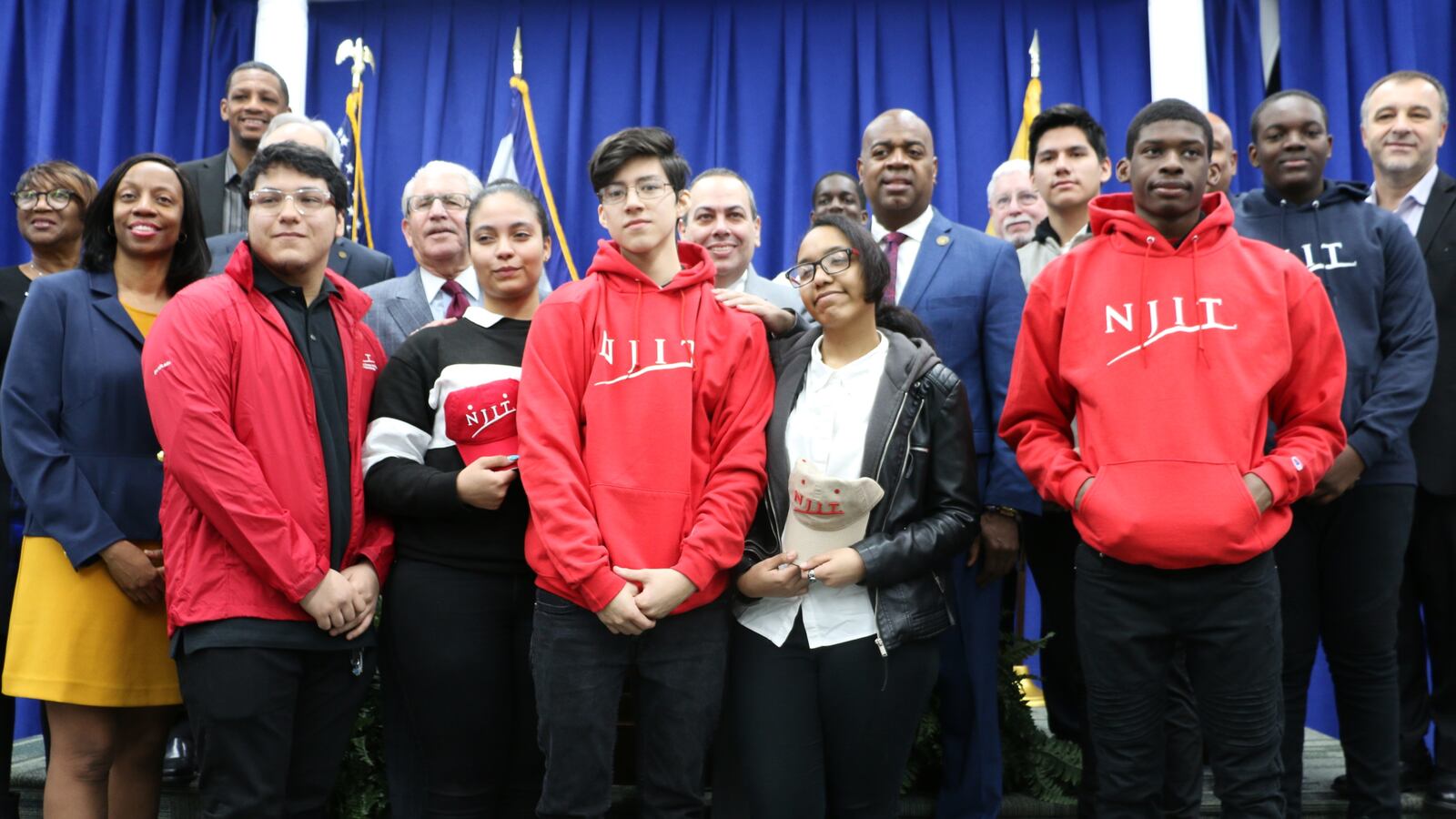The New Jersey Institute of Technology has called Newark home for nearly 140 years. Yet less than 2 percent of its current students hail from the city — something the public research university is promising to change.
To do that, it plans to tackle the financial and academic barriers that officials say prevent many Newark students from attending.
Through a partnership with Newark Public Schools and the mayor’s office, NJIT will help teach math to students at four district high schools — Central, Malcolm X Shabazz, Science Park, and Technology — and provide training to their teachers, officials announced Wednesday.
The university will also spend more than $1 million on financial aid for Newark students, and offer full scholarships to three Newark Public Schools students each year, officials said.
The goal: to enroll at least 600 undergraduate students from Newark. This academic year, just 200 of the university’s roughly 11,400 total students are Newark residents.
“We can achieve that,” said NJIT President Joel Bloom at City Hall alongside Mayor Ras Baraka and Newark schools chief Roger León. “It’s a comprehensive program.”
The partnership continues a campaign, launched last year by Baraka and local business and higher-education leaders, to increase college attainment in Newark.
In recent years, a growing number of Newark students have enrolled in college. Yet fewer than 10 percent attend selective schools like NJIT, according to a recent study that tracked graduates of district, county, charter, and private high schools in Newark. Instead, the most common destination is Essex County College, a community college in Newark.
One reason that so few Newark high school graduates land at competitive colleges is because many students do not apply to those schools even when they have the grades and test scores to get in, according to the report by the Newark City of Learning Collaborative and Rutgers University-Newark. Researchers call that “undermatching.”
Another cause is financial. Even with tuition assistance, the full cost of attending college is out of reach for many Newark students.
Under the new initiative, NJIT and the district will select three high-achieving students per year — including at least one each from Shabazz and Technology — to attend the university’s Albert Dorman Honors College. Those students will receive full scholarships, as well as paid summer internships with the city.
For all other Newark students, the university will make sure they receive as much financial support as necessary, Bloom said. About 72 percent of students receive some form of financial aid at NJIT, where in-state tuition is $14,174.
“We’re going to make sure that you never leave NJIT for financial reasons,” he said.
The other major admission obstacle is academics — in particular, math. Bloom said Newark students often struggle with math, which is the bedrock of the science, technology, and engineering fields that NJIT specializes in. He attributed that partly to a lack of rigorous math classes in high school, saying many Newark graduates have not studied precalculus or calculus.
The new partnership between Newark and NJIT, called the “Math Success Initiative,” is meant to strengthen students’ math skills at the four high schools. Beginning this summer, a select group of rising seniors will study math for seven weeks at NJIT, while also receiving tutoring and counseling. Eight of their teachers will receive training by NJIT faculty members.
During the school year, the group of 30 to 40 students will continue to take math classes at the university during the week and on Saturdays. They will also get help submitting college and financial aid applications. Meanwhile, 24 teachers will meet monthly with NJIT faculty.
Superintendent León said Wednesday that he is also making district-wide changes to ensure that all graduates are prepared for college-level math. For instance, he is adjusting the sequence of high-school math courses to make sure students have a chance to take advanced subjects like calculus, and is providing additional math training for teachers.
“This is going to change the face of how we teach math in our high schools,” León said.


